 Ted Baldwin
Ted Baldwin
Ted Baldwin is currently the Director of the Science & Engineering Libraries at the University of Cincinnati. From 2014-2018, he was Co-Leader for UC’s Research & Data Services (RDS) team. Working with an RDS Co-Leader from UC’s Health Sciences Library, Ted built campus-wide programs for researcher support including: service models and staffing, workshops and course instruction, community-building events and researcher-oriented lab spaces. RDS focus areas include: research data management, data analysis and visualization, open science and reproducibility, GIS, and bio/informatics. In his RDS role, Ted has presented at conferences of CNI, Open Repositories and the Special Libraries Association.
As Director of the Science & Engineering Libraries, Ted is liaison librarian to chemical/biological departments in the sciences and engineering and to the Oesper Museum & Collections in the History of Chemistry. He has also led digital projects/digitization initiatives, including the UC commemorative website/digital archive for Neil Armstrong (aerospace professor from 1971-1979). Ted has an MLS (Specialization in Chemical Information) from Indiana University, and a BA (dual degree, Chemistry & Music) from DePauw University.
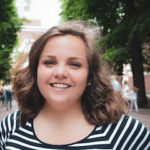 Megan Barney
Megan Barney
Megan Barney is a Master’s Candidate in Public History at Northeastern University and is also working towards a Graduate Certificate in the Digital Humanities. Megan holds a B.A. from Elmira College in History and American Studies. Her research interests focus on the ways in which history can be made digitally accessible through informal education. Her current project, History Needs New Heroes, explores how high school history textbooks present and forget important individuals and advocates for a more inclusive education of the past.
Barney began working for the Digital Scholarship Group (DSG) in 2018 as a research assistant for Our Marathon: The Boston Bombing Digital Archive. Additionally, she has done work for the Holocaust Awareness Committee Archives and the Early Caribbean Digital Archive. As the current DSG coordinator, she works closely with the DSG management and the digital pedagogy team. As the coordinator, she also organizes office hours, events, and workshops on topics in the digital humanities for students, faculty, staff, and community members.
 Doyle Calhoun
Doyle Calhoun
Doyle Calhoun is a second year PhD student at Yale University in the department of French, where he specializes in francophone North and West African literature. His research interests include the relationship between language and colonial violence, intersections between literature and linguistics, and the Digital Humanities. His work has been published in journals such as Language & History, the Canadian Journal of African Studies, and Research in African Literatures.
Prior to Yale, he completed an M.A. in French linguistics and literature (summa cum laude) at KU Leuven in Belgium, where he was also a Fulbright Research grantee. He graduated from Boston College with a B.A. in linguistics and French literature (summa cum laude) where he collaborated with the Digital Scholarship Librarians in order to create an online corpus of 19th-century grammars and dictionaries of Niger-Congo languages compiled by French missionaries: Corpus de Travaux Linguistiques des Missionnaires.
 Dan Cohen
Dan Cohen
Dan Cohen is the Vice Provost for Information Collaboration, Dean of the Libraries, and professor of history at Northeastern University. His work has focused on the impact of digital media and technology on all aspects of knowledge and learning, from the nature of libraries and their evolving resources, to twenty-first century research techniques and software tools, to the changing landscape of communication and publication. He has directed major initiatives that have helped to shape that future.
Prior to his tenure at Northeastern, he was the founding Executive Director of the Digital Public Library of America, which brought together the riches of America’s libraries, archives, and museums, and made them freely available to the world. Through a partnership with President Obama and other nonprofits and publishers, DPLA also distributed thousands of award-winning ebooks for free to millions of in-need children.
 Elizabeth Maddock Dillon
Elizabeth Maddock Dillon
Elizabeth Maddock Dillon is Professor and Chair of the Department of English and Co-director of the NULab for Texts, Maps, and Networks at Northeastern University. She teaches courses in the fields of early American literature, Atlantic theatre and performance, and transatlantic print culture. She is the author of New World Drama: The Performative Commons in the Atlantic World, 1649-1849 (Duke University Press, 2014) which won the Barnard Hewitt Award for Outstanding Research in Theatre History from the American Society for Theatre Research and The Gender of Freedom: Fictions of Liberalism and the Literary Public Sphere (Stanford University Press, 2004), which won the Heyman Prize for Outstanding Publication in the Humanities at Yale University. She is co-editor with Michael Drexler of The Haitian Revolution and the Early U.S.: Histories, Geographies, Textualities, which is forthcoming from the University of Pennsylvania Press.
She has published widely in journals on topics from aesthetics, to the novel and performance in the early Atlantic world, to Barbary pirates. She is the co-director of the Futures of American Studies Institute at Dartmouth College and the former the chair of the American Literature Section of the Modern Language Association. She currently serves on the editorial boards of Signs and the Women Writers Project and has served on the editorial boards of Early American Literature and American Literature and the advisory board of PMLA. She is the founder of the award-winning crowd-sourced digital archive Our Marathon: The Boston Bombing Digital Archive, and the co-founder and co-director of the Early Caribbean Digital Archive.
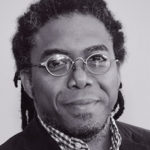 Themba Flowers
Themba Flowers
Themba Flowers is currently the Director of Digital Scholarship Services at Yale University Library. In this role, he manages services in support of data analysis and reproducibility, digital humanities, digital publishing, and digital projects.
His current and previous functions include teaching workshops, managing technology initiatives, designing and supporting next-generation learning environments, as well as providing support for active learning pedagogies and research design. Themba has significant experience leading teams in Library, IT, space design, information security, software development, and educational technologies. He has presented at American Library Association, Educause, Digital Libraries Federation (DLF) Forum, OpenCon NYC, NERCOMP, and New Media Consortium (NMC) among others.
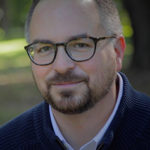 Matt Gardzina
Matt Gardzina
As Director of Digital Pedagogy & Scholarship at Bucknell University Gardzina is responsible for providing leadership, direction, planning, and oversight for the wide-range of outreach, consultation, instruction and support programs of the DP&S work group including digital pedagogy, digital scholarship, and focused programs in GIS and video. Gardzina previously held instructional technology positions at The College of Wooster, Washington & Jefferson College and Duke University. Before joining Duke, Gardzina was a faculty member at Cary Academy where he taught history, coached the cross country and track and field teams; he also helped establish a technology program for historically underrepresented Wake County(NC) high school students. He holds a bachelor’s degree from St. Lawrence University and master’s degree in European history from The Catholic University of America and is a 2016 Leading Change Institute Fellow.
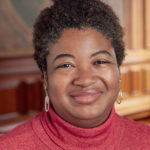 Harriett Green
Harriett Green
Harriett Green is the Associate University Librarian for the Digital Scholarship and Technology Services division at Washington University in St. Louis. She leads library planning and programming for scholarly services that support digitally-intensive research approaches, overseeing the library departments for scholarly publishing, repository services, data services, and information technology services.
She previously was at the University of Illinois at Urbana-Champaign, where she was Head of Scholarly Communication and Publishing, Scholarly Communication and Publishing Librarian and associate professor, University Library and School of Information Sciences. Her publications include published works in College & Research Libraries, LLC: Literary and Linguistic Computing, Library Quarterly, EDUCAUSE Review, Journal of the Association of Information Science and Technology, and portal: Libraries and the Academy. Her research has been supported by grants awarded from the Institute for Museum and Library Services, Andrew W. Mellon Foundation, XSEDE, and National Endowment for the Humanities.
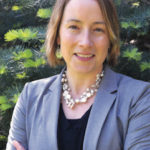 Meg Heckman
Meg Heckman
Meg Heckman is an Assistant Professor of journalism and a faculty affiliate of the NULab for Texts, Maps and Networks at Northeastern University. She teaches a mix of graduate and undergraduate classes that support students in cultivating digitally relevant skills in verification, story craft and audience engagement. She is also the advisor for The Scope, a student-run startup devoted to telling stories of justice, hope and resilience in Boston and beyond.
Before coming to Northeastern in the fall of 2017, Meg was a lecturer at the University of New Hampshire where she served as a faculty fellow at the Peter T. Paul Entrepreneurship Center and taught a variety of classes in UNH’s journalism program. She spent more than a decade as a reporter and, later, the digital editor at the Concord (NH) Monitor, where she developed a fascination with presidential politics, a passion for local news and an appreciation for cars with four-wheel drive. Meg writes regularly for a variety of publications about the intersection of gender, technology and journalism, and her recent work has appeared in USA Today, The Boston Globe and the Columbia Journalism Review. She also continues to work as an occasional consultant for local news organizations striving to find their voices online.
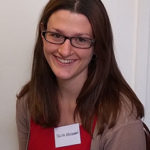 Talya Housman
Talya Housman
Talya Housman is the Fellow at the Center for Digital Scholarship at the Brown University Library and a PhD candidate in the History Department. She holds a bachelor’s degree from Trinity College Dublin and a Master’s degree from Brown. Her dissertation focuses on prosecuting cases of sexual crime and gendered violence in England between 1642 and 1660 and is titled: “To Plunder all under the Petty-coate.” The dissertation project involved building a relational database which holds data on cases of sexual crime and gendered violence prosecuted in England between 1642 and 1660. It allows users to query almost 3,500 early modern legal cases talking about over 10,000 different individual people in approximately 6,000 records. Housman has co-edited a digital edition of The Miscellany of Henry Oxinden published by the Folger Shakespeare Library in 2014. She has also created digital content for several public history organizations including the National Parks Service (at the Roger Williams National Memorial) and EnCompass, the Rhode Island Historical Society’s online digital textbook. Her work at the Center for Digital Scholarship includes consultations on digital projects in departments across the university.
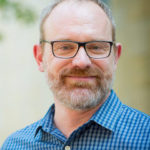 Dan Jackson
Dan Jackson
Dan Jackson directs the NuLawLab at Northeastern University School of Law, an interdisciplinary innovation laboratory working to merge creative arts and law to create new models of legal empowerment. Dan is a 1997 graduate of Northeastern Law and a 1990 graduate of Northwestern University. Following a postgraduate clerkship with The Hon. Hugh H. Bownes at the U.S. Court of Appeals for the First Circuit, Dan worked for 13 years with the law firm of Bingham McCutchen, ultimately serving as the firm’s director of attorney development after practicing in the employment law group. Prior to law school, Dan worked as a designer for theater. He continues to do so, most recently with the Provincetown Tennessee Williams Theater Festival and The Provincetown Theater.
 Anna Kijas
Anna Kijas
Anna E. Kijas is Senior Digital Scholarship Librarian at Boston College Libraries where she develops and manages digital projects.She provides instruction and training for faculty, students, and staff interested in applying computational tools and methods in their research and pedagogy. Through musicology and libraries she became involved with digital humanities, exploring and pursuing ways in which computational methods and tools can augment scholarly writing and publishing. Kijas has a vested interest in the exploration and application of digital humanities tools and methods in historical research, and in the application of standards, including TEI and MEI, for open access research and publishing. She is also interested in supporting sustainable ways of developing digital projects through efforts, such as minimal computing.
Kijas plays an active role in the digital humanities community, at home and abroad.She established and led the DigitalHumanities Interest Group for the Music Library Association (MLA)from 2013 to 2018. For the past three years, she has taught GIS and TEI sessions at the ARL Digital Scholarship Institute and as of 2018 became co-chair of the Curriculum Committee. She has organized, convened, and taught at various THATCamps over the years and led Wikipedia edit-a-thons and manuscript transcribe-a-thons. She is a Program Committee member for the inaugural 2019 Association of Computers and the Humanities conference (Pittsburgh), a Program Committee member for the 2019 Music Encoding Conference (Austria), and Organizing Committee Chair for the 2020 Music Encoding Conference that will be held at Boston College.
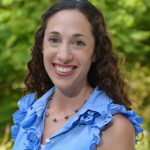 Pamella Lach
Pamella Lach
Pamella Lach is the Digital Humanities Librarian and member of the “Digital Humanities and Global Diversity” Area of Excellence at San Diego State University, where she directs the Library’s Digital Humanities Center (https://library.sdsu.edu/dh). Pam’s work explores how new and emerging technologies transform humanistic scholarship and pedagogy. Her areas of interest include data visualization, information retrieval, user experience design, and digital pedagogy. She is currently studying how folksonomy, or user-generated social tagging, can enhance and disrupt traditional authority-driven classification schemas. She previously served as the Head of the Center for Faculty Initiatives and Engagement at the University of Kansas Libraries. Prior to that she was the Associate Director of the Digital Innovation Lab at the University of North Carolina at Chapel Hill. She has a PhD in U.S. Cultural History with an emphasis on gender and film history from UNC, and a MS in Information Science from UNC’s School of Information and Library Science.
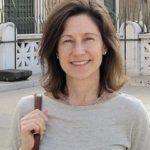 Stephanie Leone
Stephanie Leone
Stephanie Leone is Professor of Art History at Boston College. A specialist in Italian Renaissance and Baroque art and architecture with a focus on Rome, Stephanie studies the topics of patronage, the papal court, secular architecture, architectural production, the building industry, art collecting, and material culture. Her publications include a monograph on the Palazzo Pamphilj in Piazza Navona, an edited volume on the art patronage of the Pamphilj family, and articles and chapters on the art and architecture of palaces, the Pamphilj art collections, and other subjects. Along with traditional art historical methods, Professor Leone employs digital technology in her research and teaching. She is using historical network analysis in her monographic study of Pope Innocent X’s patronage and the architectural production of his building sites in mid-seventeenth-century Rome, which will result in the book, Innocent X Pamphilj (1644-1655): Building Baroque Rome.
Professor Leone teaches the introduction to art history and upper-level courses on the Early Renaissance, High Renaissance, and Baroque periods in Italy (ca. 1300-1750). In the Core Curriculum, she teaches an Enduring Questions course on Venetian art, architecture and the environment, which is paired with an Earth and Environmental Sciences course on coastal geology and development. In undergraduate seminars, she explores topics related to her research, such as Italian palaces and the history of collections and museums. Using digital technology in course projects, her students become collaborators in the iterative process of research and knowledge.
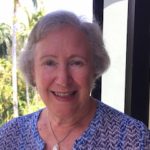 Joan Lippincott
Joan Lippincott
Joan K. Lippincott is the Associate Executive Director of the Coalition for Networked Information (CNI), a joint program of the Association of Research Libraries (ARL) and EDUCAUSE, based in Washington, DC. At CNI, Joan has provided leadership for programs in teaching and learning, learning spaces, digital scholarship, and assessment. She served on the board of the New Media Consortium (NMC) and on its advisory boards for the Horizon Report for both higher education and libraries. Joan was the editor of the EDUCAUSE Review E-Content column and was chair of the Association of College & Research Libraries’ (ACRL) New Publications Board, and served as a member of the ACRL task force that produced the Framework for Information Literacy for Higher Education. She has served on the Advisory Boards of the Learning Spaces Collaboratory and the Learning Space Toolkit project. Joan has served as a consultant to many academic libraries for their space renovation projects and has been on the planning committee for the Designing Libraries for the 21st Century conference since its inception.
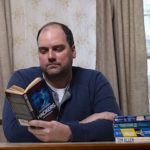 Jim McGrath
Jim McGrath
Jim McGrath is a Postdoctoral Fellow in Digital Public Humanities at Brown University’s John Nicholas Brown Center for Public Humanities and Cultural Heritage. At Brown Jim teaches graduate-level courses and collaborates with students, faculty, and community partners on digital projects like Mapping Violence, Rhode Tour, and Public Work: a public humanities podcast, among others. Jim received his doctorate in English from Northeastern, where he was also Co-Director of Our Marathon: The Boston Bombing Digital Archive, an award-winning digital public humanities initiative.
 Sarah Melton
Sarah Melton
As the Head of Digital Scholarship at Boston College Libraries, Sarah leads a group that explores and documents new tools and supports teaching and research in a variety of areas that utilize broad methodologies in the digital humanities. She is passionate about open access to information and civic data literacy, and she oversees the Libraries’ scholarly communications and publishing initiatives. Sarah seeks to facilitate organizational change through non-hierarchical forms of leadership and decision-making.
Sarah received her PhD from Emory University, where she completed her dissertation on public histories of civil and human rights in the US South and South Africa. She was previously the digital projects coordinator at the Emory Center for Digital Scholarship. Sarah is a co-lead for Endangered Data Week, an annual event that raises awareness to threats to publicly available data, and works with Mozilla as a mentor in their Open Leaders program.
 Trevor Muñoz
Trevor Muñoz
Trevor Muñoz is the Interim Director of the Maryland Institute for Technology in the Humanities (MITH), as well as Assistant Dean for Digital Humanities Research at the University of Maryland Libraries. His work focuses on humanities approaches to data curation and on the design and sustainability of interdisciplinary research collaborations. Muñoz is a Co-Principal Investigator for the African American History and Culture and Digital Humanities (AADHum) Initiative. With Jennifer Guiliano, he serves as Co-Director of the Humanities Intensive Learning + Teaching (HILT) Institute. He frequently presents and consults on the strategic opportunities and challenges of doing digital humanities work within the institutional and cultural structures of academic research libraries. Muñoz holds an MA in Digital Humanities from the Department of Digital Humanities at King’s College London and an MS in Library and Information Science from the School of Information Sciences at the University of Illinois, Urbana-Champaign.
